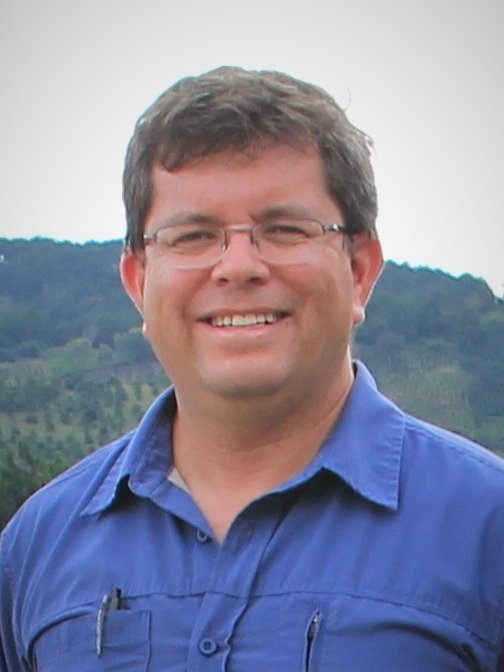Dr. Michael Wimberly’s career is driven by his interest in the natural world. As a child, he liked the outdoors and landscapes, and was always interested in how people integrate themselves into and use natural spaces. He majored in environmental science as an undergraduate, worked for a period of time, and then pursued and received an M.S. in Quantitative Resource Management from the University of Washington and a Ph.D. in Forest Ecology from Oregon State University. Now, he works as a professor in the Department of Geography and Environmental Sustainability.
Being a professor allows him to do a variety of things he enjoys: research, writing, and working with students and colleagues.
Wimberly is trained as a landscape ecologist, and all of the research he does looks at different types of human interactions with the natural world. “The topics are quite diverse. One topic is infectious disease: the way we share a variety of pathogens with other organisms. I’m interested in how humans create built environments and how they impact and interact with natural environments. Another thing I’ve studied a lot in my career is fire as one of the major drivers of global change.”
Wimberly has studied malaria in Ethiopia since 2009, specifically the environmental determinants of malaria.
Early research involved studying how weather drives malaria outbreaks and using that data to develop malaria forecasting tools to give advance warning of outbreaks. More recently, and during the COVID pandemic, Wimberly led a USAID-supported project bringing malaria early warning to the national level. “It’s really a fascinating topic to work on. It’s very diverse and multi-faceted. There is mosquito biology and ecology, and there is understanding the parasite and the human response,” said Wimberly.
Wimberly was also a co-author of a paper published in The Lancet Planetary Health in November 2022. The paper came out of a workshop at a Consortium of Universities for Global Health conference. “The idea was that there are a number of people around the world who have been working on similar problems developing early warning systems for vector-borne diseases in different places. And there is a tendency for people who work in this space to encounter a variety of similar challenges in terms of implementation. Often it’s because we’re the scientists, we’re good at sciencing things, but in terms of building a tool or a process that we can walk away from at some point… that’s proven to be a bigger challenge.”
The success of the workshop led the participants to put together the paper, “Advancing climate change health adaptation through implementation science.” “Going through the process has allowed us to think through the issues in a way that is helpful for other people to read about,” said Wimberly.
On a normal day, Wimberly divides his time between the work that drew him to the profession:
researching, writing, and collaborating with his students and colleagues. Along with teaching Wimberly serves as the PI of the ECOGRAPH group, which covers work in ecologically informed disease forecasting in addition to work on West Nile Virus across multiple US states and the work in Ethiopia, though that work has been slowed by the pandemic and the war. There is also a new multi-institutional project examining urban malaria in India, and how the combined effects of temperature and humidity influence mosquito dynamics and disease transmission.
Another important focus for the group is a carbon cycle science project examining fire in Africa. “One of the things that we’ve seen in recent years is with climate change encroachment of fire into tropical forests that were generally considered too wet to burn. There’s been a lot of attention to that in the Amazon, but it’s happening in Africa, too,” said Wimberly.
The students in the group research a wide variety of topics, from patterns of urban growth in Africa to how storms and severe weather impact mosquitoes and mosquito-borne disease transmission.
Wimberly has been with the University for four years. “Coming here was an opportunity to take my game up a notch,” he said. “I felt that in terms of the resources and the other people that are working on related topics here at OU that this was the place to be.”
Wimberly likes all things outdoors. He plays the guitar—”decently well”—and some other instruments—”not so well.” He enjoys attending plays and concerts and visiting museums with his family, as well as traveling when possible throughout the year.
By Kathryn Gebauer
Article Published: Monday, January 30, 2023
